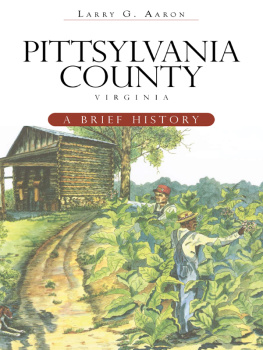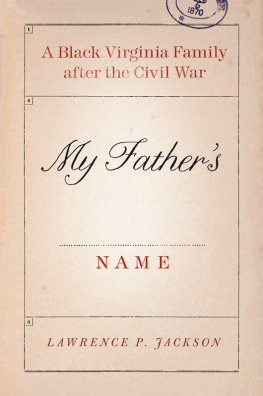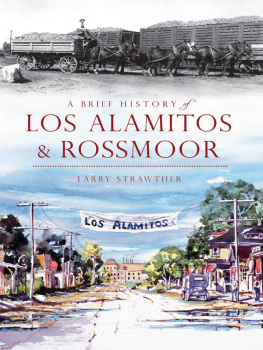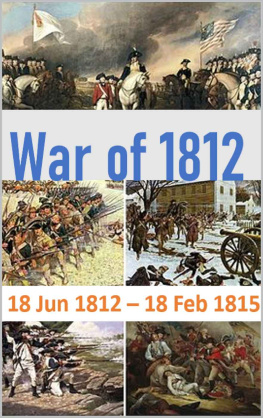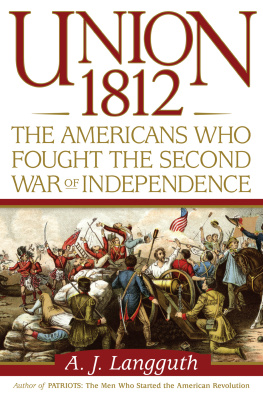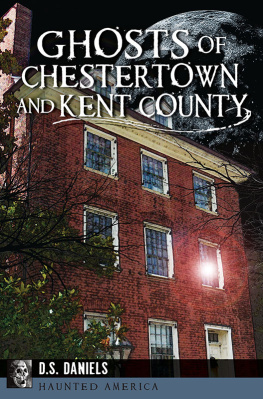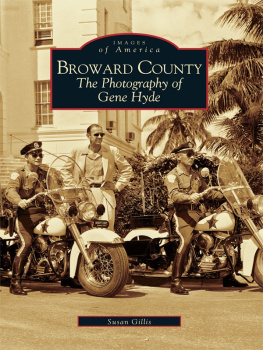Published by The History Press
Charleston, SC 29403
www.historypress.net
Copyright 2014 by Larry G. Aaron
All rights reserved
Cover images: Top image, left to right: Rachel Jackson, Walker Coles, Dolley Madison. Bottom image: Painful March of Volunteers, engraving from The Second War with England, by J.T. Headley.
First published 2014
e-book edition 2014
ISBN 978.1.62585.275.5
Library of Congress Control Number: 2014953172
print edition ISBN 978.1.62619.750.3
Notice: The information in this book is true and complete to the best of our knowledge. It is offered without guarantee on the part of the author or The History Press. The author and The History Press disclaim all liability in connection with the use of this book.
All rights reserved. No part of this book may be reproduced or transmitted in any form whatsoever without prior written permission from the publisher except in the case of brief quotations embodied in critical articles and reviews.
To Walter Coles V of Coles Hill,
Pittsylvania County, Virginia.
CONTENTS
FOREWORD
The War of 1812or, as the British referred to it at the time, the American Waris probably the least understood and most forgotten war in American history. Yet so many of our most patriotic sayings and slogans came out of this war. Stirring statements such as Dont give up the ship! and We have met the enemy and they are ours derive from both our naval success and failures during the war. Not to mention The Star-Spangled Banner, sung perhaps hundreds if not thousands of times by Americans on a daily basis.
The recent spate of publications about the war from both sides of the Atlantic has helped Americans to better understand the origins and legacy of the war. This is in no small part due to the commemoration of the 200th anniversary of the War of 1812. Primarily observed in those states in which events took place, many of these observances have taken place on local or state levels. Most Americans, if at all familiar with the War of 1812, probably know about the burning of the Capitol and the White House in Washington, D.C.; the repulse of the British at Baltimore; and Andrew Jacksons great victory over the British at New Orleans. However, many Americans, in particular Virginians, would be surprised to learn that Virginia suffered more from British depredations and raids during the war than any other state, with the exception of New York and possibly Maryland. British naval forces remained in Virginias waters longer than in any other states. From that presence in February 1813 until March 1815, British naval and marine forces launched punishing raids on small towns and plantations up and down the Chesapeake Bay.
Larry Aaron, in his Pittsylvania County and the War of 1812, reminds us that there is much to be learned through regional studies. Aaron points out that since there was no British presence in Pittsylvania County during the war, the county, in response to Governor James Barbours call for help, sent many of its local militia to defend the commonwealth from British incursions. Aaron tells us that many of the men were sent to Norfolk during the course of the war. Norfolk was the chief port for Virginia, and its capture or destruction by the British would have been devastating to the war effort if not to the trade and commerce of the rest of Virginia and northeastern North Carolina. Others, he notes, were sent to Richmond camps to deter possible British invasion along the James River. As the threat to Richmond subsided in September 1814, several Pittsylvania County companies were diverted from Richmond to the Washington-Baltimore area, eventually camping at Ellicotts Mill, just outside Baltimore, until the end of November.
Using the invaluable records at the National Archives and Records Administration and other depositories, Aaron is able to record the movements and experiences of a number of Pittsylvania soldiers during the war. He makes judicious use of the personal information about militia soldiers from pension and bounty land application files that the soldiers or their families obtained from the U.S. government after the war. Pittsylvanians also enlisted and served in the regular U.S. Army during the war. From official and personal letters found in archives, libraries and in private hands, Aaron highlights the army career of Captain Walter Coles. In letters to his sister back in Pittsylvania, Captain Coles described his military life and service, particularly its hardships, on the Canadian frontier.
Larry Aarons book makes a fine contribution to the growing number of new publications on the War of 1812. In doing so, he emphasizes the local aspect of the war and how one rural Virginia county was affected by the war, as well as the contributions of its citizens to the greater war effort. We need more books like Mr. Aarons to help tell the full story of Virginias role in the war.
Stuart Butler
ACKNOWLEDGEMENTS
A book of this sort is hardly the sole work of one individual, and so it is in this case. Without the contributions of others, this story of Pittsylvania County and the War of 1812 could not have been written.
First and foremost, I dedicate this book to Walter Coles V of Coles Hill in Pittsylvania County, whose ancestor Walter Coles I served in the U.S. Army during the War of 1812. Walter V grew up on a tobacco and cattle farm in the Pittsylvania plantation home built by his ancestor in 1815 shortly after the war. After graduating from The Citadel in South Carolina, Walter embarked on a distinguished army career, with two tours of duty in the Vietnam War, during which he received Bronze Stars for ground operation against hostile forces and Air Medals for distinguished service in aerial flight operations over enemy territory.
Following Vietnam, he served thirty years as a career diplomat in the U.S. Foreign Service as an economic development officer, the key architect for U.S. policy initiatives on privatization and land reform implementation in former Soviet bloc countries. He was especially honored by the president of Moldova for his extraordinary assistance in transforming that countrys economy.
For this work, Walter V generously provided letters from his 1812 ancestor Walter Coles I, whose writings homealong with those of his cousin, Elbridge Gerry Jr., of Boston to his sister, Catherine Coles, of Pittsylvania Countyrevealed a great deal about the war on the Canadian frontier, as well as military life. Due to the scarcity of 1812 letters from soldiers, these letters make the war a more personable story while at the same time adding exciting new information about the War of 1812.
Copies of original letters from Walter Coles I and Elbridge Gerry Jr. in the Papers of the Gerry and Coles Families at the Huntington Library in San Marino, California, were acquired with the help of Olga Tsapina, Norris Foundation curator of American history.
Secondly, I would like to thank the Pittsylvania Historical Society for awarding me a grant from the Herman and Helen Melton Historical Fund, which is dedicated to historical research and preservation in Pittsylvania County. Herman Melton, now deceased, wrote a short letter to me at the beginning of this project, congratulating me on having received the grant that he and his wife endowed. His words kept me going. He noted that little attention had been paid to this subject in Pittsylvania County histories and added, The project is long overdueIts time somebody did [it]. I was honored to have his blessing and only wish that he could have lived to see the finished product.



